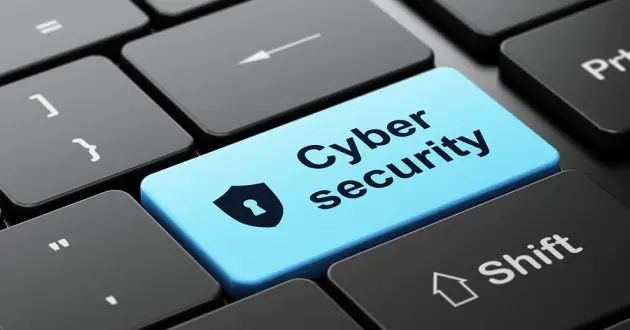The past couple of weeks have been abuzz with outrage at the circular from the Central Bank of Nigeria (CBN) to commercial banks in the country to begin to implement the 0.5 per cent cybersecurity levy on electronic transactions, itself based on the Cybercrime (prohibition, prevention, etc.) Amendment Act of 2024.
The reactions to the operationalisation of the levy is understandable: the past year has been a difficult period for Nigerians arising from rising inflation, which itself has been worsened by the removal of fuel subsidies, increase in electricity tariffs and the floating of the naira. It is not without reason that there will be opposition to this levy, which will likely increase the cost of electronic transactions in the country, especially when there are efforts to reduce cash-based transactions.
While President Bola Ahmed Tinubu has directed the CBN (it should have been asked, since technically, the CBN is an independent institution) to halt the implementation of the levy while the policy is under review, the levy raises questions not just about the rationale for it but also the process of lawmaking in Nigeria.
The Cybercrime Act, which was first enacted in 2015, has been in the news for the wrong reasons, due to its Section 24, which was targeted at cyberstalking, but has been used repeatedly to stifle the right to freedom of speech online by citizens.
- Small-scale farmers key to achieving food security – NABG
- Niger wants scavenger market relocated over insecurity
There are numerous cases where citizens have been arrested under that section of the law because of comments they have made online (e.g Chioma Okoli who made a negative review of Erisco tomato paste) and journalists who were arrested over the stories that they have written, such as the recent cases of Daniel Ojukwu of the Foundation for Investigative Journalism.
At least 25 journalists have been prosecuted under the Cybercrime Act since its enactment in 2015 and at least eight detained in the one year since the Tinubu administration came into power, according to the Committee to Protect Journalists.
Little wonder that Nigeria continues to rank poorly on the World Press Freedom Index by Reporters Without Borders – 112th out of 180 – as journalists continue to face frequent abductions, arrests and prosecutions for reporting on corruption and bad governance, which the Cybercrime Act 2015 has made easier through its Section 24.
This is why citizens and civil society organisations have consistently called for the amendment of that section, a sentiment which the ECOWAS Court of Justice agreed with when it ordered the Nigerian government in March 2022 to amend the act as “It is not in conformity with Articles 9 of the African Charter on Human and Peoples’ Rights (ACHPR) and the International Covenant on Civil and Political Rights (ICCPR).”
Thus, it was expected that when a bill to amend the Act was introduced into the Senate in October 2023, there was going to be a lot of interest in it, especially from citizen groups concerned about how it keeps getting used to stifle digital freedom of expression. A public hearing held the following month was also well attended, with several CSOs and citizen groups in attendance that made submissions for specific amendments to the Act.
However, the draft of the amendment bill was never in the public domain. As such, when the Senate passed the bill on December 21, 2023, citizens did not know the contents of the amendments. It was still not made public when the House of Representatives passed it on February 14, 2024. Curiously enough, it took just a day from it being transmitted to the president on 27th February and its being signed, yet with no announcement around it by either the National Assembly or the president.
Were it not for the circular by the CBN to banks based on a directive from the Office of the National Security Adviser to commence collection of the levy, Nigerians would have continued to largely be in the dark about the law and its amendments.
This sort of opacity does not bode well for citizen participation in the lawmaking process and defeats the purpose of a democracy that is hinged on that very participation. An ideal process for amending this law should have included putting the bill in the public domain, particularly on the website of the National Assembly.
While there are numerous instances where proposed legislation is made publicly available and public hearings held to collate input from citizens, it is yet to be the established procedure for every law. This means that in many cases, citizens are resigned to not knowing the specific details of proposed legislation that would affect their lives, or at best, try to leverage their networks to get copies of bills that should have been easily available to them.
There is a need for the National Assembly to make it mandatory for every bill that comes to it to be available to the public, with mechanisms to collect citizens’ input, either through a public hearing or otherwise.
If the Cybercrime Act had been subjected to such a process, it is very likely that there would have been public opposition to the inclusion of the cybersecurity levy or calls for it to be made less ambiguous. However, the opacity with which the amendment was passed means that unless there is a further amendment to the law, it takes only one directive for the bill to be implemented.
But even beyond the cybersecurity levy, it goes against the spirit of democracy that laws would be proposed, passed and even signed without citizens knowing the actual content of those laws.
This right here is a major problem that we all need to deal with.
Mark Amaza works as the Senior Communications Officer at Yiaga Africa

 Join Daily Trust WhatsApp Community For Quick Access To News and Happenings Around You.
Join Daily Trust WhatsApp Community For Quick Access To News and Happenings Around You.


